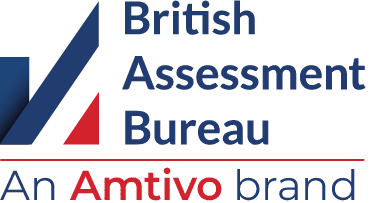The Great British Insulation Scheme has emerged as a transformative initiative in the United Kingdom, originally known as ECO+, aiming to enhance the energy efficiency of buildings and reduce carbon emissions. An integral aspect of this scheme is its alignment with PAS 2030, a recognised standard for energy efficiency retrofit measures. This article explores the connection between the Great British Insulation Scheme and PAS 2030, highlighting how this collaboration contributes to sustainable and energy-efficient practices.
The Great British Insulation Scheme
The Great British Insulation Scheme, launched by the UK government, addresses the urgent need to mitigate climate change and achieve national carbon reduction targets. Through this scheme, financial incentives and support are provided to homeowners and businesses. This aims to improve the energy efficiency of their properties through means such as loft insulation, cavity wall insulation and solid wall insulation. This in turn reduces energy consumption, lowers carbon emissions, and helps to contribute towards the country’s goals on climate change.
The program also aims to enhance assistance for individuals with low incomes while also expanding support to households residing in homes categorised under the lower council tax bands (A to D in England, A to E in Scotland and Wales) and possessing an Energy Performance Certificate rating of D and below.
The Department of Energy Security and Net Zero has officially designated Ofgem as the administrator of the Great British Insulation Scheme. The department has released a draft guidance document for public consultation on the administration of the scheme.
Previously known as ‘ECO+’ during its consultation phase in November 2022, the Great British Insulation Scheme aims to help thousands of people across the UK to improve the insulation of their homes. The scheme’s draft delivery guidance has been made available for stakeholders and interested parties to examine and provide their insights.
It is anticipated that a finalised version of the Great British Insulation Scheme Delivery Guidance will be published in the autumn of 2023, incorporating any changes deemed necessary based on the feedback received during the consultation period.
 |
What Has Changed With the Great British Insulation Scheme?
- Scope and Focus: The Great British Insulation Scheme has a broader scope and covers a wider range of energy efficiency measures beyond just insulation. It encompasses various retrofitting measures, renewable energy installations, heating system upgrades, and more. In contrast, ECO+ primarily focused on insulation measures.
- Government Involvement: The Great British Insulation Scheme is a government-led initiative, while ECO+ was delivered through energy suppliers under government obligations. The shift to a government-led approach allows for better coordination and a more unified strategy for achieving energy efficiency goals.
- Funding and Incentives: The funding and incentives structure has seen changes between the two schemes. Under ECO+, energy suppliers were responsible for funding and providing incentives. In the Great British Insulation Scheme, the government provides financial support directly to homeowners and businesses through grants and subsidies, making it more accessible and streamlined.
- Awareness and Outreach: The Great British Insulation Scheme has put a greater emphasis on raising awareness and promoting the benefits of energy efficiency measures. It aims to educate the public and encourage widespread participation, making energy efficiency a priority for households and businesses across the country. This focus on awareness and outreach was not as prominent in the ECO+ scheme.
- Integration with Standards: The Great British Insulation Scheme incorporates with PAS 2030, which sets out standards for energy efficiency retrofit measures. This integration ensures that installations meet the required quality and performance benchmarks. ECO+ did not have a specific alignment with such standards.
- Climate Change Targets: The Great British Insulation Scheme aligns closely with the UK’s carbon reduction targets and broader climate change commitments. It aims to make a significant contribution to reducing greenhouse gas emissions and addressing climate change concerns. While ECO+ had similar objectives, the Great British Insulation Scheme has a stronger focus on achieving national carbon reduction goals.
The Link Between the Great British Insulation Scheme and PAS 2030
The Great British Insulation Scheme and PAS 2030 work together to actively promote compliance with both standards pointing towards reducing our carbon footprint. By integrating PAS 2030 requirements into the scheme, a strong emphasis is placed on quality assurance and performance standards. This helps ensure that the insulation measures implemented through the scheme meet the necessary benchmarks, ultimately leading to optimal energy savings and environmental benefits.
Benefits of the Collaboration
Both the Great British Insulation Scheme and PAS 2030 offer several benefits:
- Enhanced Energy Efficiency: By following the specifications of PAS 2030, insulation measures are carried out with a focus on efficiency, resulting in significant energy savings. Proper insulation reduces heat loss, improves thermal comfort, and lowers energy consumption leading to reduced carbon emissions as well as savings overall.
- Quality Assurance: Compliance with both schemes ensures that installation, maintenance, and improvement of energy efficiency measures are carried out to a high standard. This promotes trust and confidence amongst homeowners and businesses, assuring them of the effectiveness and longevity of their insulation investments.
- Professionalism and Expertise: Both schemes encourage installers and contractors to attain relevant qualifications and certifications which lead to a more skilled workforce with the necessary expertise to deliver high-quality insulation installations.
- Long-term Sustainability: The combination of the Great British Insulation Scheme and PAS 2030 fosters long-term sustainability in the building industry. By implementing energy-efficient measures, properties become more resilient to future energy price fluctuations and contribute to the overall reduction of the UK’s carbon footprint.
Conclusion
The Great British Insulation Scheme, in collaboration with PAS 2030, represents a significant step towards achieving energy efficiency and reducing carbon emissions. By aligning with established standards, the scheme ensures that insulation measures meet the required benchmarks for quality, performance, and sustainability. The integration of PAS 2030 not only enhances the effectiveness of the scheme but also instils confidence in homeowners and businesses regarding the long-term benefits of energy-efficient upgrades. Together, the Great British Insulation Scheme and PAS 2030 contribute to a greener and more sustainable future for the United Kingdom.
Having expertise in delivering PAS 2030, British Assessment Bureau can guide you through the entire certification process. To find out how we can help you, please contact us today.




